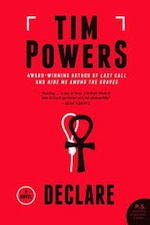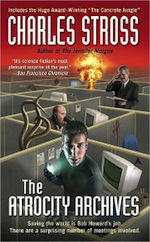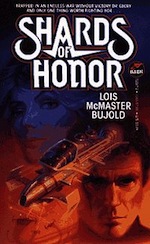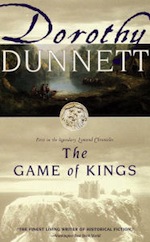It’s a grave cold night in a city that knows how to keep its secrets. Alleys fill with mist. A flashlight casts a ghostly glow in a back office of a supposedly-deserted government building. Figures with obscured faces meet in the shadows of a parking garage. This file doesn’t exist, and I’m certainly not handing it to you now. In fact, this building won’t be here tomorrow. Besides—who’s to say you haven’t dreamed this entire conversation?
Two great truth-seekers arose from twentieth-century fiction: the noir detective and the spy. They live in similar worlds: murky and high-contrast, full of suspicion and distrust, peeling back the skin of consensus reality to reveal the worms beneath. The spy and detective have their differences, though. Most of the time, you can trust the detective. She’s here to right wrongs, to find murderers and bring them to justice, or at least try. The spy’s motives are murkier. It’s unclear whether she’s out to save anyone except herself.
The detective believes in right—she believes she can make a difference, no matter how small. The spy has seen the other side. The spy knows that good’s the word on the survivor’s tongue. She’s sacrificed her last inch of hope; she’s seen the darkness, and knows its name.
But while detectives and the world of science fiction and fantasy are on intimate terms—the genre’s full of PIs guiding readers through fantastic realms, seeking truths and dispensing the occasional wisecrack—the fantastical spy’s a rarer being. When she surfaces, she leaves an impression before she disappears into the night.
Writing The Witch Who Came in from the Cold, we drew on a rich tradition of weird spies from a range of media, but here are a few books you might seek out if you’re looking to check our sources.
Declare by Tim Powers
 The less known about a Tim Powers novel going in, the better, so may I suggest stopping now and reading this book if you haven’t already? Declare is a tale of twentieth century weirdness that follows a world of secret knowledge struggling to reinvent itself in the face of deeper and more secret knowledge. Catching hosts of strange-but-true details of history in the net of its plot, Declare melds the plausibly deniable symbolism and grandiose, grotesque schemes of magic and espionage.
The less known about a Tim Powers novel going in, the better, so may I suggest stopping now and reading this book if you haven’t already? Declare is a tale of twentieth century weirdness that follows a world of secret knowledge struggling to reinvent itself in the face of deeper and more secret knowledge. Catching hosts of strange-but-true details of history in the net of its plot, Declare melds the plausibly deniable symbolism and grandiose, grotesque schemes of magic and espionage.
The Laundry Files by Charles Stross
 Charles Stross’ Laundry Files confront the worlds of magic and covert espionage with the less mysterious, but far more opaque, soul-sucking domain of civil service bureaucracy. Here the spies and monsters are both on the table, unpacked with excellent humor and set off against slide decks, action items, matrix management, and obscure data filing systems. Declare and The Laundry Files both start from the LeCarre premise that spies, mystical or otherwise, are part of an organization—but Declare supposes the organization in question is competent, while the Laundry Files suppose that it looks a lot more like the kind of organizations we all encounter in daily life. Which only adds to the horror.
Charles Stross’ Laundry Files confront the worlds of magic and covert espionage with the less mysterious, but far more opaque, soul-sucking domain of civil service bureaucracy. Here the spies and monsters are both on the table, unpacked with excellent humor and set off against slide decks, action items, matrix management, and obscure data filing systems. Declare and The Laundry Files both start from the LeCarre premise that spies, mystical or otherwise, are part of an organization—but Declare supposes the organization in question is competent, while the Laundry Files suppose that it looks a lot more like the kind of organizations we all encounter in daily life. Which only adds to the horror.
The Miles Vorkosigan books by Lois McMaster Bujold
 Bujold’s brilliant science fictional Ruritanias enable some of my favorite intrigue in genre. Miles Naismith Vorkosigan, Bujold’s hero, has a weak body but a brilliant mind—too brilliant for his own good, in fact. Miles’ fast footwork leads him into mission after mission for Barrayaran intelligence, as a highly placed secret agent-cum-interstellar mercenary admiral. It all makes sense, and trust me, if you don’t know these books already, you’re in for a hell of a ride. Start at the beginning with The Warrior’s Apprentice, or, really, with any of her books. Bujold deserves all the praise she receives, but there’s one talent of hers I never appreciated until I was six books into writing my own series: she’s one of the best on-boarders in the business.
Bujold’s brilliant science fictional Ruritanias enable some of my favorite intrigue in genre. Miles Naismith Vorkosigan, Bujold’s hero, has a weak body but a brilliant mind—too brilliant for his own good, in fact. Miles’ fast footwork leads him into mission after mission for Barrayaran intelligence, as a highly placed secret agent-cum-interstellar mercenary admiral. It all makes sense, and trust me, if you don’t know these books already, you’re in for a hell of a ride. Start at the beginning with The Warrior’s Apprentice, or, really, with any of her books. Bujold deserves all the praise she receives, but there’s one talent of hers I never appreciated until I was six books into writing my own series: she’s one of the best on-boarders in the business.
The Lymond Chronicles by Dorothy Dunnett
 The past’s not just another country, it’s a whole damn other world. Dorothy Dunnett’s hero, Francis Crawford of Lymond, spends much of his titular series as a sort of freelance intelligence agent, frequently in Scotland’s service, but often in the service of Scotland’s greater interests regardless of whatever Scotland’s current government might have to say about the subject. Lymond swings between professions—fugitive, mercenary captain, nation-builder—but he’s always a bit of a spy. It’s a stretch including him on this list, but historical fiction taken this seriously has as much world building as any work of fantasy or science fiction—and once you add in the peculiarities of Lymond’s world (the separate order of geniuses to which he and a few select other characters belong, the Dame de Doubtance, etc.), we’re practically in another universe altogether.
The past’s not just another country, it’s a whole damn other world. Dorothy Dunnett’s hero, Francis Crawford of Lymond, spends much of his titular series as a sort of freelance intelligence agent, frequently in Scotland’s service, but often in the service of Scotland’s greater interests regardless of whatever Scotland’s current government might have to say about the subject. Lymond swings between professions—fugitive, mercenary captain, nation-builder—but he’s always a bit of a spy. It’s a stretch including him on this list, but historical fiction taken this seriously has as much world building as any work of fantasy or science fiction—and once you add in the peculiarities of Lymond’s world (the separate order of geniuses to which he and a few select other characters belong, the Dame de Doubtance, etc.), we’re practically in another universe altogether.
Stations of the Tide by Michael Swanwick
 Like the characters at its core, Swanwick’s novel transforms before the reader’s eyes. Is it a detective story masquerading as a spy story? Vice versa? Does it start as one and become the other? Is it a story of magic, or religion, or science, or all of these at once? Hidden agendas are plumbed; power is used sparingly, viciously, unfairly; secrets are revealed and concealed, and the world changes.
Like the characters at its core, Swanwick’s novel transforms before the reader’s eyes. Is it a detective story masquerading as a spy story? Vice versa? Does it start as one and become the other? Is it a story of magic, or religion, or science, or all of these at once? Hidden agendas are plumbed; power is used sparingly, viciously, unfairly; secrets are revealed and concealed, and the world changes.
Originally published in January 2016 as part of our Five Books series.
Max Gladstone has been thrown from a horse in Mongolia, drank almond milk with monks on Wudang Shan, and wrecked a bicycle in Angkor Wat. He is one of the authors of The Witch Who Came in From the Cold, a collaborative fantasy spy series from Serial Box. Max is also the author of the Craft Sequence novels, about undead gods and skeletal law wizards. Max fools everyone by actually writing novels in the coffee shops of Davis Square in Somerville, MA. His dreams are much nicer than you’d expect.









